 Raise a Glass to Freedom
Raise a Glass to Freedom
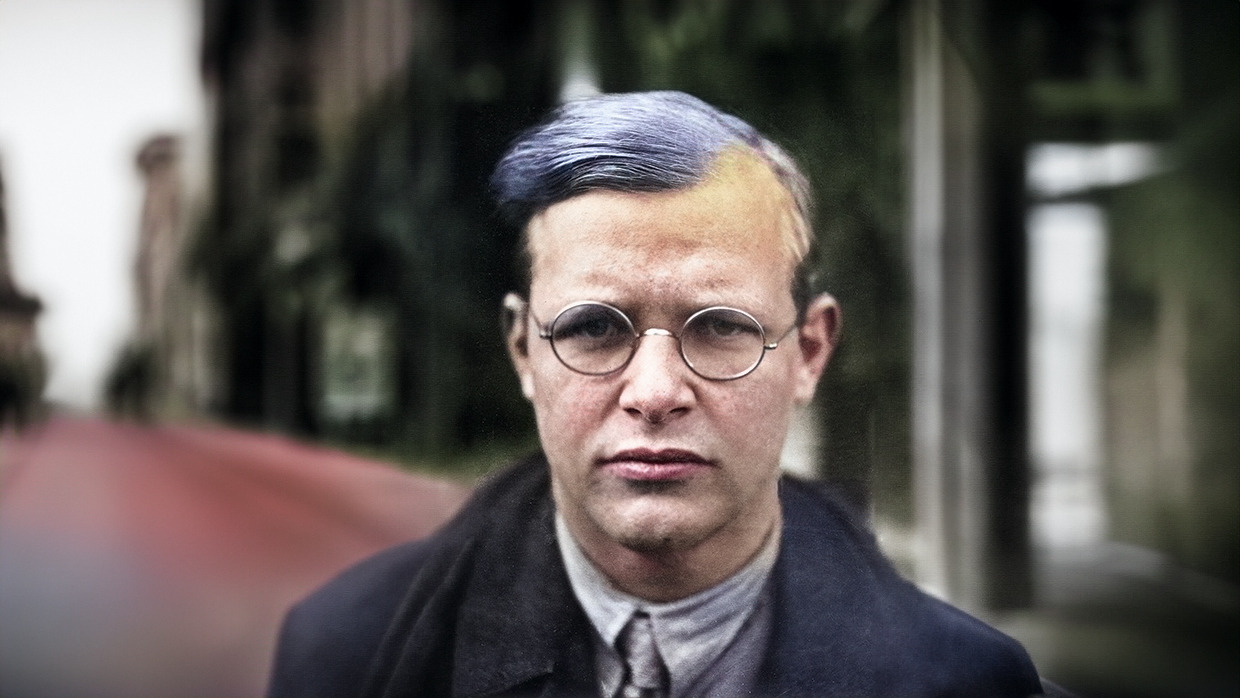

16 min read
Dietrich Bonhoeffer wrestled with his own theology and stood up for the Jewish People.
For many American Jews, October 7 was a rude awakening. Turns out, there are far more antisemites among us than we realized. Across the country, pro-Hamas protestors target sleepy suburban synagogues by angrily screaming “From the River the Sea” mere yards away from their doorways.
Even more upsetting is the silence of the masses. Though a majority of Americans still support Israel, the antisemites own the streets. Pro-Hamas rallies are constantly grabbing headlines, while pro-Israel rallies are few and far between. Most good Americans remain silent and passive, even as antisemitism shows no signs of abating. Why won’t our friends speak up?
While shocking for some of us, this movie has played out before, in 1930s Germany. Then, as now, good people disgusted by public displays of antisemitism remained silent, either believing that it would blow over or because they were too afraid to speak out.
But there were some rare exceptions, most prominent among them a pastor named Dietrich Bonhoeffer.
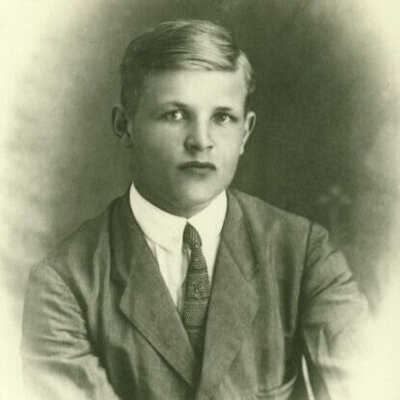
Though relatively unknown among Jews, Bonhoeffer has attained rock star status in Christian circles. Eric Metaxas’ hefty tome, Bonhoeffer: Pastor, Martyr, Prophet, Spy, sold over a million copies. For many, he has become a modern saint – a man who died while standing up for his faith and principles. To Jews, however, his legacy is more complex. As Rabbi Adin Steinsaltz once said, we don’t believe in “plastic saints.” Still, Bonhoeffer has much to teach us, now more than ever.
Born in 1906 to a prominent and highly educated family, Bonhoeffer made the unusual choice to become a pastor. His agnostic father, Germany’s leading psychologist, questioned his decision, as did his seven siblings. They argued that the Church was a “boring, petty bourgeois institution,” to which Bonhoeffer responded, “In that case I shall reform it!”
While earning his doctorate in theology and becoming a pastor, Bonhoeffer proved to be an independent thinker. He spent a year in studying at the Union Theological Seminary in New York, where he felt drawn to the black community and became an advocate for civil rights. He was also active in the international ecumenical movement and was willing to learn from other denominations of Christianity, building friendships that would later provide crucial help in his fight against Nazi Germany.
For a German Lutheran pastor, Bonhoeffer had an unusual love for the Hebrew Bible.
For a German Lutheran pastor, Bonhoeffer had an unusual love for the Hebrew Bible, what Christians refer to as the “Old Testament.” During the 18 months he spent in Nazi prisons, he repeatedly read through the Hebrew Bible, drawing more strength from it than from the New Testament.
But this was not simply a matter of personal preference. Shortly after Hitler assumed power in 1933, the Nazi regime began their attempt to purge the German Church of its “Jewish” elements.” The “German Christians,” a pro-Nazi Christian group, portrayed Jesus as an Aryan, and rejected the authority of the Hebrew Bible altogether. Unlike many traditional Christians, Bonhoeffer insisted on the importance of the Hebrew Bible and the significance of its primary protagonist – the Jews, God’s chosen people. He even wrote a book on Psalms but was denied permission to publish the book, and his attempt to do so raised red flags about his loyalty to regime.
In short order, the German Christians assumed power and began the Nazification of all churches in Germany. As part of the broader “Aryan laws” established throughout the country, pastors with Jewish ancestry were prohibited from speaking in German churches. For the Nazis, even baptism could not change the facts – a Jew was a Jew. This was intolerable to Bonhoeffer, who led a movement of pastors to secede from the official Nazi Church and form a new “Confessing Church” that would remain free of Nazi influences.
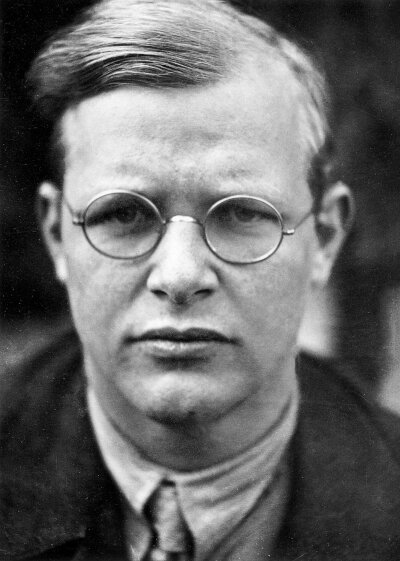
Ultimately, even the Confessing Church would prove unwilling to stand up to the Nazis. In the early years of the Nazi regime, most Christians still believed that Adolph Hitler could be reasoned with and even domesticated. Many appreciated his success in restoring Germany’s national pride after the humiliation of World War I and the Treaty of Versailles. Karl Barth, a famous Christian theologian who later strongly opposed Hitler and Nazism, made several attempts to meet with Hitler in 1934, believing he was a man who could be reasoned with. When Hitler pulled Germany out of the League of Nations, Martin Niemöller, a German pastor the Nazis would later imprison for seven years, sent a congratulatory telegram to Hitler in which he swore his loyalty to the Fuhrer. The Holocaust was still several years in the future, but all of the warning signs were already there.
Although the Confessing Church initially took a clear stand against the German Christians, most of its leaders avoided political criticism of the Nazi regime. With few exceptions, Confessing Church pastors did not acknowledge what was really at stake and would remain shamefully silent about the persecution of German Jews.
As Niemöller would later famously write, “First they came for the socialists, and I did not speak out - because I was not a socialist. Then they came for the trade unionists, and I did not speak out - because I was not a trade unionist. Then they came for the Jews, and I did not speak out - because I was not a Jew. Then they came for me - and there was no one left to speak for me.”
Silence in the face of evil is itself evil.
Bonhoeffer was not fooled. In a letter to his friend, Erwin Sutz, he wrote: “I believe any discussion between Hitler and Barth would be quite pointless - indeed, no longer to be sanctioned. Hitler has shown himself quite plainly for what he is, and the church ought to know with whom it has to reckon… The Oxford movement was naive enough to try and convert Hitler - a ridiculous failure to recognize what is going on.”
Naivete, apathy, and cowardice – all of this disgusted Bonhoeffer. As Eric Metaxas writes, “Bonhoeffer raged against the idea that faith is some passive assent to intellectual theological ideas. You cannot claim you believe something if you don’t live like you believe it.” Faith meant living one’s entire life in obedience to God through action. “Silence in the face of evil is itself evil. Not to speak is to speak. Not to act is to act. God will not hold us guiltless.”
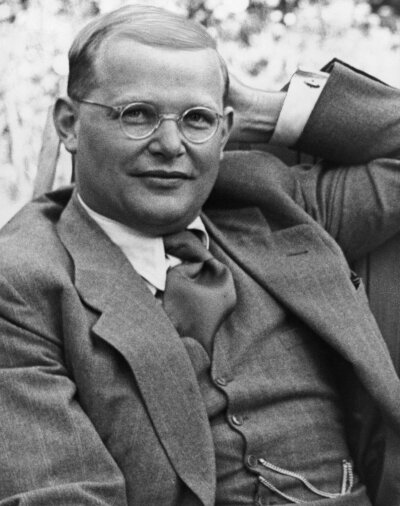
As Hitler drove Germany ever closer to war, Bonhoeffer left the country for America to avoid being drafted. But almost immediately after arriving in New York, he felt that he had made a mistake. He read the words of Isaiah, “The believer does not flee” (28:16), and realized, as he wrote to Reinhold Niebuhr, “I have made a mistake in coming to America. I must live through this difficult period of our national history.” It was a decision that would ultimately lead to his death.
On April 11, 1933, the father of Bonhoeffer’s Jewish brother-in-law died. Asked to officiate at the funeral, Bonhoeffer refused, failing in his first opportunity to stand up for the Jews against Nazi discrimination. He followed the advice of his church superior, who warned him not to lead a funeral service for a Jew only a few days after the Nazis promulgated their antisemitic Aryan legislation.
Bonhoeffer was ashamed of his lack of courage and wrote his brother-in-law seven months later: “To be frank, I can’t think what made me behave as I did. How could I have been so much afraid at the time? It preys on my mind… because it’s the kind of thing one can never make up for. So all I can do is to ask you to forgive my weakness then. I know now for certain that I ought to have behaved differently.”
Bonhoeffer’s theology is even more troubling. Only four days after refusing to officiate at the funeral, he completed his essay “The Church and the Jewish Question” – an essay that should make any self-respecting Jew squirm in discomfort.
At the start of the essay, Bonhoeffer cites Martin Luther, the antisemitic father of the Protestant Reformation and the German church, who said in 1546, “We should still show [the Jews] the Christian doctrine and ask them to turn and accept [Jesus] whom by rights they should have honored before we did… Where they repent, leave their usury, and accept [Jesus], we would gladly accept them as our brothers.”
In a few short sentences, Bonhoeffer blames the Jews for crucifying Jesus and call for their conversion to Christianity.
Then, in a few short sentences, Bonhoeffer blames the Jews for crucifying Jesus and call for their conversion to Christianity. “The church… has never lost sight of the thought that the ‘chosen people’, who nailed the redeemer of the world to the cross, must bear the curse for its action through a long history of suffering . . . But the history of the suffering of this people, loved and punished by God, stands under the sign of the final home-coming of the people of Israel to its God. And this home-coming happens in the conversion of Israel.”
Bonhoeffer then tried to soften the traditional Christian position, by placing the blame for Jesus’ death on all peoples. “We reject the false doctrine that would make the crucifixion… the fault of the Jewish people alone as though other peoples and other races had not crucified him. All races and peoples, even the mightiest, share in the guilt for his death and become guilty of it every day anew, when they commit outrage against the spirit of grace.”
Still, despite the antisemitic theology Bonhoeffer inherited from the Lutheran church, Bonhoeffer wrote in the very same essay that “the Church has an unconditional obligation to the victims of any ordering of society, even if they do not belong to the Christian community” and that “No nation can ever be commissioned to avenge on the Jews the murder of Golgotha.”
All in all, Bonhoeffer’s essay makes for very unpleasant reading. If the Jews are even partially guilty for murdering Jesus, they surely deserve their suffering. Why, then, should Christians care for the Jews being persecuted at that very moment by the Nazis?
Yet Bonhoeffer did care. Julie Bonhoeffer, his 91-year-old grandmother, publicly walked through picket lines to shop at Jewish stores boycotted by the Nazis – an act of defiance that made a deep impression on her grandson. As the 1930s progressed, his letters revealed increasing concern for the plight of the Jews that defied his Lutheran theology. At one point, Bonhoeffer declared – in a sharp rebuke to his fellow pastors – that “Only he who cries out for the Jews may sing Gregorian chants.” If a pastor led his church in worship while ignoring the terrible suffering of the Jews taking place right under their noses, God was not interested in their worship.
The great change in his thinking came on November 10, 1938 – the day after Kristallnacht, the Night of Broken Glass, when Hitler order the Gestapo to perpetrate a nationwide pogrom against the Jews. 91 Jews were killed, thousands were beaten, and 267 synagogues were destroyed alongside of thousands of Jewish businesses. The next day, Bonhoeffer spoke about the horror with his seminary students, who actually believed that the reason this evil occurred must be the “curse” that all Jews bore for rejecting Jesus. Disturbed by his students’ callousness, Bonhoeffer replied angrily, “If the synagogues burn today, the churches will be on fire tomorrow.”
If the synagogues burn today, the churches will be on fire tomorrow.
The next day, Bonhoeffer read Psalm 74 as part of his daily Bible readings. When he reached verses 7 and 8, he stopped in his tracks: “They set Your Sanctuary afire; to the ground they profaned the dwelling place of Your name… they burned all the meeting places of God in the land.” He underlined the verses and wrote “11/9/38,” the date of Kristallnacht. Bonhoeffer believed that God was sending him a message through the Bible, and as he reflected on the verses he realized an important truth: the synagogues burned in Germany were God’s meeting places. To attack the Jewish people, God’s beloved children, was equivalent to attacking God Himself. For Bonhoeffer, this was the closest thing he would ever experience to prophecy; it was a revelation from God.
One of Bonhoeffer’s students recalled that his teacher was “driven by a great inner restlessness, a holy anger,” and raced off in his car to Berlin, “to be with brethren and friends in trouble.” From this point onwards, Bonhoeffer was prepared to risk his life to help the Jewish people.
Bonhoeffer learned about the secret German conspiracy to overthrow Hitler through his brother-in-law, Hans von Dohnanyi, who worked in the Justice Ministry and was an early opponent of the Nazis. In 1940, Dohnanyi helped Dietrich avoid military service by getting him an assignment with the Military Intelligence office, where many of the anti-Nazi conspirators served.
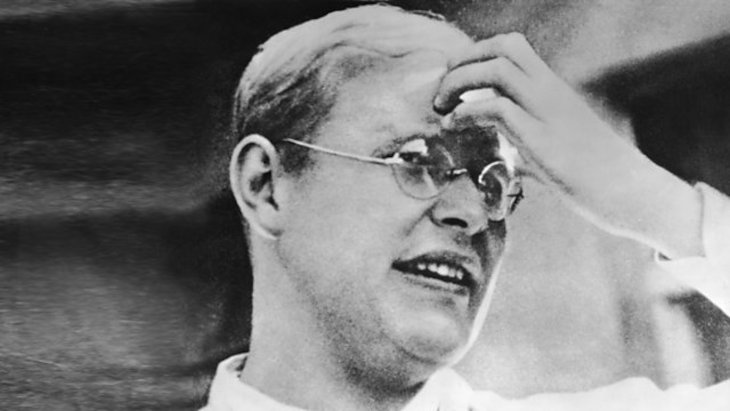
The first deportations of Berlin Jews to unknown destinations in the east began in October of 1941. Within a few days, Bonhoeffer wrote a memo listing details of the deportations and sent it to foreign contacts, hoping to galvanize the world to act on behalf of the Jews.
Soon afterward, Bonhoeffer became involved in a secret operation codenamed U7 (Operation 7), whose goal was to save seven Jews from death (the number eventually doubled to 14). The Jews, including some of Dohnanyi’s friends, were on deportation lists and would almost certainly be murdered. The plan was to bring them Switzerland by convincing the Nazis that they would serve as agents of the Nazi government and lie to the broader world by telling them how well the Germans were treating the Jews. The Swiss, however, were officially neutral in the war and refused to accept the Jews.
At this point, Bonhoeffer stepped in, begging his Christian contacts in Switzerland to use their influence and accept the Jewish group. The Swiss finally agreed, but demanded a large amount of foreign currency be sent to Switzerland as the price of admission. The plan went forward and the Jews were saved, but the foreign currency exchange was ultimately Bonhoeffer’s undoing. Later on, the Gestapo noticed the irregularity, which ultimately led to Bonhoeffer’s arrest.
Their efforts culminated in the failed July 20, 1944 attempt to assassinate Hitler and overthrow the regime.
Following Operation 7, Bonhoeffer became increasingly involved in the conspiracy against Hitler, working closely with his brother Klaus and brother-in-law Dohnanyi. After several other attempts, their efforts culminated in the failed July 20, 1944 attempt to assassinate Hitler and overthrow the regime.
After the Gestapo exposed the funds transferred to the Swiss in "Operation Seven," Bonhoeffer and Dohnanyi were apprehended in April 1943. Initially, Bonhoeffer faced charges related to conspiring to rescue Jews, utilizing his foreign travels for non-intelligence purposes, and misusing his intelligence position to assist Confessing Church pastors in avoiding military service. Following the unsuccessful coup attempt on July 20, 1944, his ties to broader resistance circles were revealed, leading to his transfer to the Gestapo prison in Berlin, and later to the Buchenwald and Flossenbürg concentration camps.
On April 9, 1945, less than a month before Germany’s surrender, he was executed alongside his brother Klaus and his brothers-in-law Hans von Dohnanyi and Rüdiger Schleicher. Together, their bodies were tossed in a pile and burned, where their ashes mingled with those of untold numbers of Jews murdered there before him.
In 1996, the United States Holocaust Memorial Museum held a ceremony to honor Hans von Dohnanyi and Dietrich Bonhoeffer as “righteous gentiles” for helping save Jews during the Holocaust. Nevertheless, the invitation to the ceremony included the following statement: “Although repudiating Nazism, Bonhoeffer also expressed the anti-Jewish bias of centuries-old Christian teaching.” A half century after his death, Jews remained divided on how to view the courageous German pastor.
Bonhoeffer was never able to fully transcend the traditional Christian belief that God chastises the Jewish people for the crucifixion and their stubborn refusal to accept Christian belief. From this perspective, Bonhoeffer was part of the millennia-long problem of Christian antisemitism that laid the foundations for the Holocaust.
That Bonhoeffer was able, in practice, to rise above his inherited prejudices and risk his life in an operation to save Jews is what sets him apart.
At the same time, we must remember that Bonhoeffer lived at a time when these views were unquestionably accepted by the vast majority of Christians in Germany. From this perspective, blaming him for his theology is akin to condemning Abraham Lincoln as a racist because he held some of the prejudices of his time. That Bonhoeffer was able, in practice, to rise above his inherited prejudices and risk his life in an operation to save Jews is what sets him apart.
To the very end, Bonhoeffer’s views on Jews were evolving. In the early 1940s, Bonhoeffer clearly recognized the Church’s guilt – and perhaps his own. “She [the Church] was silent when she should have cried out because the blood of the innocent was crying to heaven. She has failed to speak the right word in the right time and at the right place… The Church confesses that she has witnessed the lawless application of brutal force, the physical and spiritual suffering of countless innocent people, oppression, hatred and murder, and that she has not raised her voice on behalf of the victims and has not found ways to hasten to their aid. She is guilty of the deaths of the weakest and most defenseless” (Ethics, 93).
Some believe that, had Bonhoeffer survived, he would have radically rethought his theological positions on the Jews. Ruth Zerner writes that Bonhoeffer’s “students and theological heirs in post war Germany have taken the lead in the creative dismantling of the Christian legacy of anti-Judaism and its historical consequences” (Ruth Zerner, Church, State and ‘Jewish Question’). Eberhard Bethge, Bonhoeffer’s closest friend and confidante who later played a significant role in changing Christian theology relating to the Jewish people, believed Bonhoeffer was a transitional figure who set the stage for Christian repentance and reconciliation with the Jewish people after the war.
Ultimately, what matters most is Bonhoeffer’s impact on Christians of our generation. As millions around the world once again call for the destruction of the Jewish people, will Christians stand up for Israel and Jews around the world? Or will they retreat to what Bonhoeffer called “private virtuousness”? “Such people neither steal, nor murder, nor commit adultery… but close their eyes and ears to the injustice around them. Only at the cost of self-deception can they keep their private blamelessness clean from the stains of responsible action in the world. In all that they do, what they fail to do will not let them rest” (Ethics, 80).
Will Christians pass the test? As Bonhoeffer would have said, God is watching – and judging.

I wonder how many Christian's realise it was actually the Romans who crucified Christ?
Just in the couple of days I watched some totally horrific videos from a famous online US right-winger: Mike Adams, of Natural News and Brighteon.
If you can tolerate this, please watch these two videos, and you will feel the atavistic hatred and loathing of Am Yisrael - not only in the author of the videos, but
also from many commentators - although not all (myself being one of them B"H).
Not only does he HATE ISRAEL, he is INCITING AMERICANS - AND AMERICA - TO ATTACK OUR SOLDIERS, AND DESTROY ISRAEL!
As good as Hamas, right? Hashem Yerachem...
https://www.brighteon.com/bec6a4ba-dbdc-44a9-922a-0d0e8975222b
https://www.brighteon.com/17e94be5-a02c-4c0e-94ce-d15a2d59be62
Thank you for sharing this story. Bonhoeffer died for helping the Jewish people. We need to stand like never before. I am reminded of Corrie ten Boom and her family that prayed for Israel decades before Israel became a nation/state. She and members of her family were violently put in a concentration camp for hiding jews in their home.She wrote the Hiding Place. I am not Jewish but my father taught me to pray for them. God bless AISH and the Jewish people.
to the best of my knowledge, and a valid source, Niemöller remained an antisemite.
The Christian belief in deicide has led to the deaths of millions of Jews throughout history. Bonhoeffer stood up to the Nazi barbarism, albeit without denying this Christian tenet.
I genuinely believe that we are nearing the End of Days and all those who stand with the Jewish People and speak out against evil and anti-Semitism will be rewarded.
Those who stand by silently, or worse, protest Israel and cry out for Jewish blood, will be held accountable.
Like so many of my Christian brothers and sisters are doing, we pray for Israel and the their obedient following of Ha Shem.
The new testament curses Jews and Torah laws
Luther writing and such led to holocaust and even events today.
It is a hate book should be banned censored as should the Quran also be censored . תודה רבה שלום
The so-called “Christian Nationalist” movement in the US should be of major concern to Jews and everyone opposed to extremism and white nationalism. These extremists claim that the territory of the US is their “Promised Land”. They justify discrimination against people of color and non-Christians by claiming that only white Christians are divinely entitled to govern the US. Their definition of “Christian” is very loose and apparently not connected with any major Christian denomination. Many of those who marched in Charlottesville were part of this movement, as were some of those who committed crimes on 1/6/21.
The Christian Nationalists are a fringe group; they have little or no influence on the wider Christian community.
I agree that they are a fringe group, many of whom do not attend church services. But they are capable of doing harm and they actively try to convert others to their movement.
An excellent article, and basically fair portrayal of Bonhoeffer’s theology. I’m a Christian and have read "Letters and Papers from Prison” and "The Cost of Discipleship"—Bonhoeffer’s most compelling works. You ask: "Will Christians stand up for Israel and Jews around the world?” I probably don’t have to tell you that the strongest supporters of Israel today are evangelical Christians, like Franklin Graham. Are you familiar with the life story of Dutch resister Corrie ten Boom and family? Her name is engraved on the white wall of the Holocaust Museum. I strongly recommend her autobiography "The Hiding Place", if you have not yet read it.
Our family was not Jewish born, but are by choice. We are not silent. Our voices are raised, determined, proclaiming the evil in the forefront of the world today - that of antisemitism, of the attempt to erase the Jewish people and the G-d of Israel to whom we are connected, and sustains us. It is always the hateful voice that is the loudest, the headline grabber. The laziest minds have the swiftest tongues and largest groups, because evil is easy. But, I know good people are making a stand, all around. There are no lines evil people won't cross, while decent people everywhere need be moral but insistent, fierce, but righteous. I do think this is "the line in the sand"...... where people choose to stand for or against Israel and her people will determine their standing before HaShem.
i keep waiting and hoping there will be more pro Israel rallies where i live. but there are none. i am going to pursue the desire to speak out!!!!
There’s a pro-Israel rally coming up on Sunday, April 7, in Washington DC. I believe a similar rally is planned for the same day in NYC.
Nicely said. Unfortunately the U.S., Britain and Canada, where I'm from, have feckless weak leaders. If they and governors from Leftist strongholds such as California and N.Y. spoke out against the antisemitism on University campuses and the streets we'd start feeling a sense of relief. I'm disgusted.
As am I. Disgusted. Disheartened, and even shocked. I didn't think or maybe didn't want to think it was so widespread. 🫤